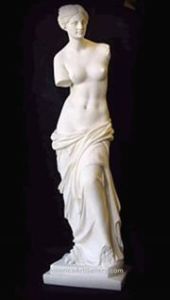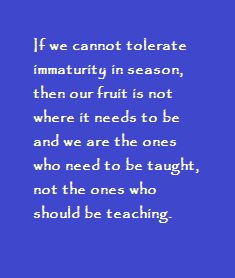Misunderstanding Yeshua: Why on earth did He call that woman a dog anyway?
It had bothered me for many years, but this morning as I was praying the Psalms, I happened upon the key to breaking down a very serious misunderstanding I had about one of Yeshua’s (Jesus’) most notorious confrontations. And it came down to a very simple parallelism.
.
Psalm 22:16a For dogs have compassed me: the assembly of the wicked have inclosed me (KJV — yes they used inclosed, and it bothers me that it is spelled that way, but it isn’t my spelling mistake)
.
Now a parallelism is something we see in Hebrew writings where a concept is expressed in two different ways but means the exact same thing. Here we see two concepts –
dogs have compassed me
the assembly of the wicked have inclosed me.
.
The Hebrew word for dog, of course, is keleb, which is very similar to the name of the great Biblical hero Caleb — one of the two faithful spies who alone were allowed to enter into the Promised land out of all their generation. Caleb was the representative for Judah, even though he was not an Israelite by birth, but a Kenezite (Joshua 14:14). I will get into why that is applicable later.
.
The word for compassed is sawbab and the word for inclosed is nawkaf. They both have similar meanings, but nawkaf is a bit more aggressive in nature. In any event, the recipient of both these words end up closed in and surrounded, which is how we know that the phrases are parallel. What does this mean? This means that as sabab and nawkaf are being linked, so are the words keleb (dog) the phrase “assembly of the wicked.”
.
So, unlike what I had previously thought, dogs are scripturally equated not only with male prostitutes, but also with the assembly of the wicked.
But why did I bring Caleb into the discussion? Well, because it helped me solve a question that had always irked me, relating to the character of Yeshua.
How many of us have always hated this exchange between Yeshua and the Caananite woman?
.
Matthew 15:21 Then Jesus went thence, and departed into the coasts of Tyre and Sidon. And, behold, a woman of Canaan came out of the same coasts, and cried unto him, saying, Have mercy on me, O Lord, thou son of David; my daughter is grievously vexed with a devil. But he answered her not a word. And his disciples came and besought him, saying, Send her away; for she crieth after us. But he answered and said, I am not sent but unto the lost sheep of the house of Israel. Then came she and worshiped him, saying, Lord, help me. But he answered and said, It is not meet to take the children’s bread, and to cast it to dogs. And she said, Truth, Lord: yet the dogs eat of the crumbs which fall from their masters’ table. Then Jesus answered and said unto her, O woman, great is thy faith: be it unto thee even as thou wilt. And her daughter was made whole from that very hour.
.
I never liked it that He called her a dog, just being honest here. To someone of my generation, a dog was one of the worst things you could call a woman short of using profanities. And to top it off, He was up in Tyre and Sidon — not in Israel! It’s like, He went to someone else’s house and insulted them for living there, I never got that.
.
But, if we substitute in “assembly of the wicked” for dog — things get a lot clearer.
.
“It is not meet to take the children’s bread, and to cast it to the assembly of the wicked. And she said, Truth, Lord: yet those from the assembly of the wicked eat of the crumbs which fall from their masters’ table.”
.
Now that reads entirely differently and ties in perfectly with Matt 7:6a Give not that which is holy unto the dogs (assembly of the wicked).
.
It is no longer a personal insult towards this woman but a recognition of what she already admitted in coming to Him. Her people were not following the way of righteousness, they were not of the righteous assembly of YHVH — if they had the right way, if they were not the assembly of the wicked, she would not have been compelled to forsake her gods on her daughter’s behalf. Yeshua wasn’t insulting her, He wasn’t telling her anything she didn’t already know. Her very actions were an admission of this truth. What He was doing was provoking her testimony. And what was her testimony?
.
“yet those from the assembly of the wicked eat of the crumbs which fall from THEIR MASTER’S TABLE.”
.
This woman was given an opportunity to proclaim that YHVH is Master. And she did it. Her actions had already proclaimed it, and now her words followed suit. And Yeshua’s response to her is no longer to a dog, but He calls her “Woman.”
.
Now, how does this tie back in to Caleb? As I said before, Caleb was not born a Hebrew, but a Gentile, and yet he was sojourning with Israel — why? Because he also had, through his actions, admitted that he was from the assembly of the wicked (the Kenezites), and through his actions declared that YHVH is Master.
.
Caleb and the Syro-phoenician woman are pictures of those in the Gentile community who confessed and denounced their position as dogs, as part of the assembly of the wicked, and who receive deliverance for themselves and their children. I think that is just beautiful.
.
I have been waiting to understand this passage for decades, and my soul is just delighting in YHVH this morning. It is wonderful to receive peace after being vexed for so long about this exchange that seemed so out of character for Yeshua. Context really is everything!




